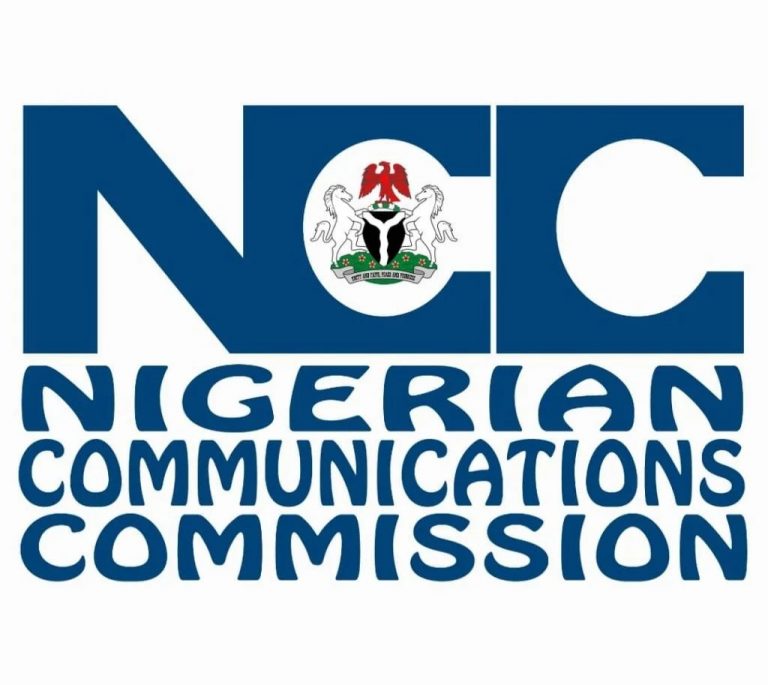Communication
Court Demands Explanation For $460M Chinese Loan On Failed CCTV Project

Last week, a Federal High Court in Abuja issued an order directing the government of President Muhammadu Buhari to provide a detailed account of the expenditure of a $460 million Chinese loan, which was intended to finance the unsuccessful Abuja Closed-Circuit Television (CCTV) project.
The court’s ruling further mandated the government to publicly disclose the complete sum of money disbursed to both Chinese and local companies and contractors involved in the project.
Additionally, the government was instructed to furnish specific information regarding the names of these companies and contractors, as well as the current status of the project’s implementation.
Hon. Justice Emeka Nwite delivered the order In a Freedom of Information suit numbered FHC/ABJ/CS/1447/2019 filed by Socio-Economic Rights and Accountability Project (SERAP).
The lawsuit was initiated in response to a statement made in 2019 by the Minister of Finance, Zainab Ahmed, regarding the loan servicing of Nigeria.
The Minister disclosed that the country was servicing the loan but expressed a lack of knowledge regarding the status of the CCTV project. She was quoted as saying, “We are servicing the loan. I have no information on the status of the CCTV project.”
In his judgment, Justice Nwite agreed with SERAP that “there is a reasonable cause of action against the government. Accounting for the spending of the $460 million Chinese loan is in the interest of the public. It will be inimical for the court to refuse SERAP’s application for judicial review of the government’s action.”
Justice Nwite also said that, “The Minister of Finance is in charge of the finance of the country and cannot by any stretch of imagination be oblivious of the amount of money paid to the contractors for the Abuja CCTV contract and the money meant for the construction of the headquarters of the Code of Conduct Bureau (CCB).”
Justice Nwite also ordered the government “to provide the details clarifying whether the sum of N1.5 billion Naira paid for the failed contract meant to construct the headquarters of the Code of Conduct Bureau (CCB) was part of another loan obtained from China.”
Justice Nwite’s judgment, read in part: “SERAP’s core objectives are to promote human rights, transparency and accountability and anticorruption in Nigeria.”
“I am of the humble view that there is a reasonable cause of action against the government [through the Minister of Finance] and I so hold that SERAP has made out a case to be entitled to the reliefs sought.”
“The law is well settled that where a document or letter is sent by post, it is the law that same is taken or presumed to have been delivered.”
“Following this principle of law and relying on exhibit OS2, SERAP’s Freedom of Information request sent to Ms Ahmed is deemed to have delivered. Therefore, the averment by the government [through her] that they were not served with the letter is hereby discountenance. I so hold.”
Joined as defendants in the suit are Ms Ahmed and the Minister of Police Affairs.
Justice Nwite granted the following orders of mandamus against the Nigerian government:
An order of Mandamus is hereby made directing and compelling the government [through the Minister of Finance] to provide and make available to SERAP information on the total amount of money paid to contractors, with specific details of names of companies local contractors involved, from the $460 million loan obtained in 2010 from China by the Federal Government of Nigeria to fund the failed Abuja CCTV contract.
An Order of Mandamus is hereby made directing and compelling the government [through the Minister of Finance] to provide the details of the local companies and Chinese contractors that have received funds from the $460 million loan for the finance of the Abuja CCTV contract as well as details of the status of implementation of the project.
An order of Mandamus is hereby made directing and compelling the government [through the Minister of Finance] to provide the details clarifying whether the sum of N1.5 billion Naira mobilisation fee reportedly paid to the contractors for the construction of the Headquarters of the Code of Conduct Bureau in Abuja was part of another loan from China. This is the judgment of the court.
SERAP deputy director Kolawole Oluwadare said: “The onus is now on President Buhari to immediately comply with the court’s orders. We commend Justice Nwite for his courage and wisdom, and urge President Buhari and Abubakar Malami, Attorney-General of the Federation and Minister of Justice to immediately obey the court orders.”
“This is a victory for justice, rule of law, transparency and accountability. The judgment shows the way forward in the fight against corruption and impunity of perpetrators. We will do everything within the law to ensure full compliance by President Buhari with this ground-breaking judgment on Chinese loans.”
“We call on President Buhari to use the judgment as the basis for publishing details of spending of all Chinese loans and other loans obtained by his government since May 2015.”
Nigeria’s total borrowing from China climbed from $1.39 billion to $4.29 billion between June 2015 and December 2022, according to data from Debt Management Office (DMO).
Nigeria’s 2023-2025 Medium Term Expenditure Framework (MTEF) and Fiscal Strategy Paper (FSP) revealed earlier in the year that the federal government will spend N6.31 trillion on debt servicing in 2023, which amounts to about 74.6% of the government’s projected revenue of 8.46 trillion for the year.
Nigeria risks losing key national assets to China in the event that it defaults in paying back loans obtained from China.
According to a report, Nigeria may have defaulted on Chinese loan repayment and stands the risk of paying a penalty amounting to N41.31 billion. The report quoted the Debt Management Office (DMO), which said Nigeria has failed to fully service its debt to China, which has accumulated to N110.31 billion in the last two years.
It would be recalled that SERAP had in December 2019 filed a lawsuit against Ms Ahmed over failure to “disclose information and specific documents on the total amount of money paid to contractors from the $460 million loan obtained in 2010 from China to fund the apparently failed Abuja CCTV project.”
The suit number, read in part: “Servicing Chinese loans for failed projects is double jeopardy for Nigerians—they can neither see nor benefit from the projects; yet, they are made to pay both the loans and the accrued interests.”
“The $460 million loan got for the failed Abuja CCTV project and the N1.5 billion for the construction of CCB headquarters, which may be part of another Chinese loan, may have been mismanaged or stolen, and in any case, remain unaccounted for.”
“Transparency in the spending of Chinese loans is good for everyone, as this would help to increase the effectiveness, legitimacy, and contribution of the loans to the development of public goods and services, and the general public interests.”
“The information being requested does not come within the purview of the types of information exempted from disclosure under the Act. The Respondent has no legally justifiable reason for refusing to provide SERAP with the information requested.”
“Democracy cannot flourish if governments operate in secrecy. The citizens are entitled to know how the commonwealth is being utilized, managed and administered in a democratic setting.”
Communication
Nigeria’s Telecom Market Eyes $11.43bn Value By 2029

In a significant market projection, Mordor Intelligence predicts that the Nigerian telecom sector is set to surge to a value of $11.43 billion by 2029.
The report anticipates a steady growth trajectory with a cumulative average growth rate (CAGR) of 4.70% between 2024 and 2029, based on the current market value of $9.09 billion.
The transformation of Nigeria’s telecom landscape, fueled by government initiatives to boost internet infrastructure and broadband connectivity, coupled with rising data consumption, 5G deployments, and innovative strategies from major telecom players, is expected to drive this substantial market expansion.
The report underscores additional factors propelling the growth of Nigeria’s telecom sector, emphasizing the surge in smartphone adoption.
the report said “Increased smartphone adoption in Nigeria has fueled the development of a dynamic digital services sector. Currently, millions of Nigerians use mobile apps, including social networking sites, e-commerce, and financial services.
“These apps could leverage smartphones’ capabilities to offer speed, convenience, and efficiency, encouraging more people to invest in smartphones.
“In addition to these expansions and collaborations, the growing adoption of digital technologies and government support in aiding the same alongside the 5G technology implementation across the country is analyzed to boost the demand for telecom towers significantly.”
“In addition to these expansions and collaborations, the growing adoption of digital technologies and government support in aiding the same alongside the 5G technology implementation across the country is analyzed to boost the demand for telecom towers significantly.”
Mordor Intelligence highlights that the flourishing e-commerce and digital service platforms in Nigeria are significant drivers behind the escalating demand for dependable telecom services in the country.
Communication
MTN Set To Partially Disconnect Glo Network

The Nigerian Communications Commission (NCC) has granted MTN’s request to partially disconnect Globacom (Glo) from its network owing to unsettled interconnect charges.
Reuben Muoka, the NCC’s Director of Public Affairs, disclosed this in a document named ‘Pre-Disconnection Notice’ on Monday.
The move follows Glo’s persistent failure to clear its outstanding debts despite multiple attempts to resolve the issue.
Under this partial disconnection, Globacom subscribers will solely receive calls from MTN users, while retaining access to other network services like outgoing calls to other networks and data services.
However, they won’t be able to initiate calls to MTN users during this period.
The statement read, “All subscribers are, therefore requested to take notice that the Commission has approved the Partial Disconnection of Globacom to MTN in accordance with Section 100 of the Nigerian Communications Act, 2003 and Paragraph 9 of the Guidelines on Procedure for Granting Approval to Disconnect Telecommunications Operators, 2012.
“At the expiration of 10 days from January 8, 2024, subscribers of Globacom will no longer be able to make calls to MTN but will be able to receive calls.
“The Partial Disconnection, however, will allow in-bound calls to the Globacom network,” it added
Communication
Despite Hardship Nigerians Spent N3.33tn On Calls, Data In 2022

Nigerian telecommunication users, along with others within the country, expended a total of N3.33 trillion on various telecom services such as calls, data, SMS, and more throughout 2022, according to the Nigerian Communications Commission (NCC).
This information comes from the recently published ‘2022 Subscriber/Network Data Annual Report’ by the NCC, which also revealed that telecom companies generated N3.33 trillion in overall revenue for that year.
The report further highlights a noteworthy growth of active voice subscriptions, rising from 195,463,898 subscriptions in 2021 to 222,571,568 by December 2022, marking a 13.86% year-on-year increase.
Commenting on the increase, it said, “The increase in the Operators’ subscriber base was attributed to a number of reasons which includes subscriber loyalty, promos, seasonal effects, aggressive consumer acquisition drive, and competitive product offerings across all the networks.”
It noted that the growth in active subscriptions impacted positively on other derived telecom indicators such as teledensity, Internet penetration as well as broadband penetration.
Data usage also continued its surge in 2022. It increased by 46.77 per cent to 518,381.78TB as of the end of the year.
The NCC stated, “There was an increase in the volume of data consumed at the year-end December 2022 when compared with the year-end December 2021.
“The total volume of data consumed by subscribers increased to 518,381.78TB as of December 2022 from 353,118.89TB as of December 2021. This represents an increase of 46.77 per cent in data consumption within the period.”



















